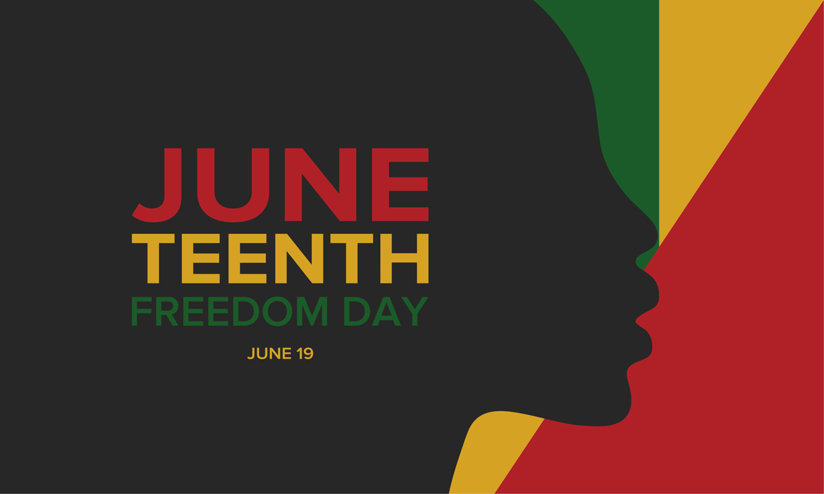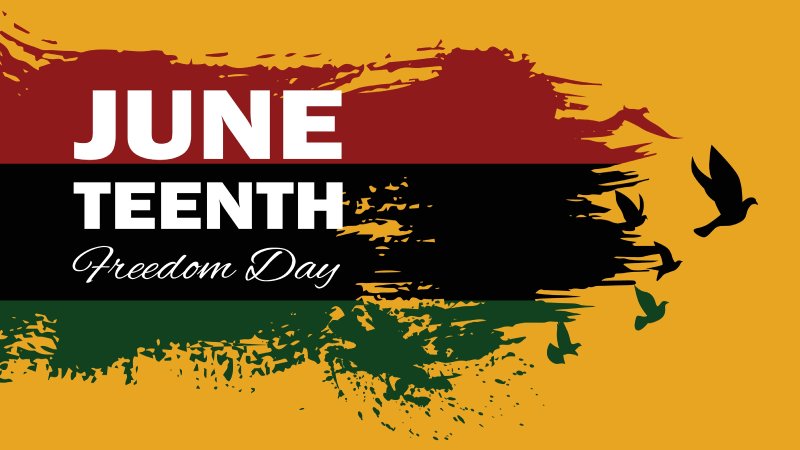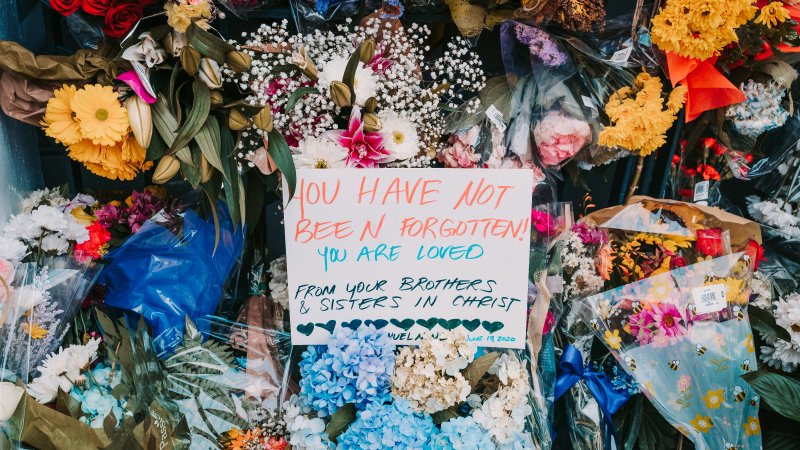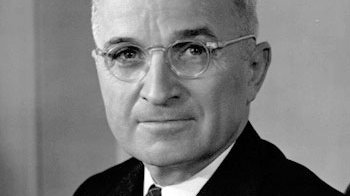
-
HOME
-
WHAT IS STANDOur Mission Our Values Our Help Contact
-
WHAT WE FIGHT FORReligious Freedom Religious Literacy Equality & Human Rights Inclusion & Respect Free Speech Responsible Journalism Corporate Accountability
-
RESOURCESExpert Studies Landmark Decisions White Papers FAQs David Miscavige Religious Freedom Resource Center Freedom of Religion & Human Rights Topic Index Priest-Penitent Privilege Islamophobia
-
HATE MONITORBiased Media Propagandists Hatemongers False Experts Hate Monitor Blog
-
NEWSROOMNews Media Watch Videos Blog
-
TAKE ACTIONCombat Hate & Discrimination Champion Freedom of Religion Demand Accountability
Juneteenth: Confronting Our Past
In early 1856, a captured slave killed her own daughter rather than have her grow up in slavery. The ensuing judicial process was complex, for, to try the woman for murder was to acknowledge that both she and her daughter were human beings. Instead, she was found guilty for the crime of destruction of property.
By 1860 the slave population in America had swelled to nearly 4 million souls. In North Carolina alone, nearly 1 out of every 3 persons was owned by another person.

You can do anything you want with property. You can buy it, sell it, trade it. You can kick it, beat it, curse it. You can abuse it and torture it without the slightest fear of penalty. Why can you do these things? Because it’s your property and because you can. It’s not a him or her—it’s property.
On September 22, 1862, President Abraham Lincoln issued Executive Order Proclamation 95, otherwise known as the Emancipation Proclamation. It read, in part:
That on the first day of January in the year of our Lord, one thousand eight hundred and sixty-three, all persons held as slaves within any State, or designated part of a State, the people whereof shall then be in rebellion against the United States shall be then, thenceforward, and forever free; and the executive government of the United States, including the military and naval authority thereof, will recognize and maintain the freedom of such persons, and will do no act or acts to repress such persons, or any of them, in any efforts they may make for their actual freedom.
With a stroke of the pen, millions of individuals ceased to be property and were recognized for the first time as the human beings that they always were.
You can do anything you want with property.
It took two and half more years for the news to reach the enslaved people of Texas. On June 19, 1865, a day henceforth celebrated in Texas as “Juneteenth,” Major General Gordon Granger issued an order enforcing Lincoln’s Emancipation Proclamation.
It has taken well over a century and a half for that event to be enshrined as a national holiday, by unanimous vote in the Senate and a nearly unanimous vote in the House.
Juneteenth is now the 12th federal holiday on the calendar. Of these holidays, three celebrate the lives of famous men (Dr. King, Columbus, Washington and Lincoln); two honor those who have served (Memorial Day and Veterans Day); one honors those who work (Labor Day); one acknowledges a religious holiday (Christmas); one commemorates our nation’s birth (Independence Day); one simply marks a calendar date (New Year’s Day); one celebrates the harvest and the blessings of the past year (Thanksgiving); and one only happens once every four years (Inauguration Day).
Juneteenth marks the final recognition of a people as human beings, possessed of souls and free will.

Why now? some skeptics have said. We know that slavery was evil and now it’s over—but that was so long ago, after all.
The answer is that the recognition of Juneteenth is, as well, a dawning of the recognition that the dehumanization of Blacks in our country has found other outlets since slavery. The events of last year were a wake-up call to many Americans that bigotry and hatred still live in our land. They live on in unequal treatment of Whites and Blacks, of denied opportunities, of more severe punishment for similar crimes, of unequal resources, and most insidiously, in the surgically precise editing of our history texts to omit the contributions of all but a few African Americans as well as the struggles of African Americans to succeed in a system weighed against them.
Juneteenth marks the final recognition of a people as human beings, possessed of souls and free will.
Think of the United States as a person. Big-hearted, sincere and successful, to be sure, but also a person with a past, present and future. And, just like a person, a nation, to fully heal, must come to terms with its past in order to face the future with a clean heart.
Mr. Hubbard, founder of Scientology, wrote that “The first step of handling anything is gaining an ability to face it.” He further writes: “That which is not confronted and inspected tends to persist.”
Evil, wrongdoing, systemic bias are all difficult things to face, but it’s easier to fix something if you know there’s something to fix and actually look at it while you’re fixing it, than to attempt the feat blindfolded. Or worse, to stand and scream that nothing is wrong while your house falls in pieces around you. That is why a full education in American history, warts and all—freedom AND slavery, equality AND Jim Crow, equal justice AND lynching, fair employment AND discrimination—is crucial if we are to move forward as a nation with a conscience.
America, great-hearted land that it is, has more often than not risen to the occasion to right wrongs within itself. This wrong of slavery, however, our own Original Sin that has persisted so long—as well as the dogged racism which has insinuated itself within our laws and our education—may be the greatest challenge to overcome of them all. But the rewards for our success in overcoming that challenge will be greater possibly than anyone now living can imagine.
More than a century and a half ago, Harriet Tubman, on first crossing over into a free state and realizing she would never again be enslaved, observed: When I found I had crossed that line, I looked at my hands to see if I was the same person. There was such a glory over everything; the sun came like gold through the trees, and over the fields, and I felt like I was in Heaven.
The slavery which once dehumanized millions of our Black forebears now chains and paralyzes the minds of hardhearted people who should know better. Let us pray that the elevation of Juneteenth represents, as well, the dawning of a national willingness to confront our past, so as restore in the present the very real hope of a far greater, joyous and more equitable future.









